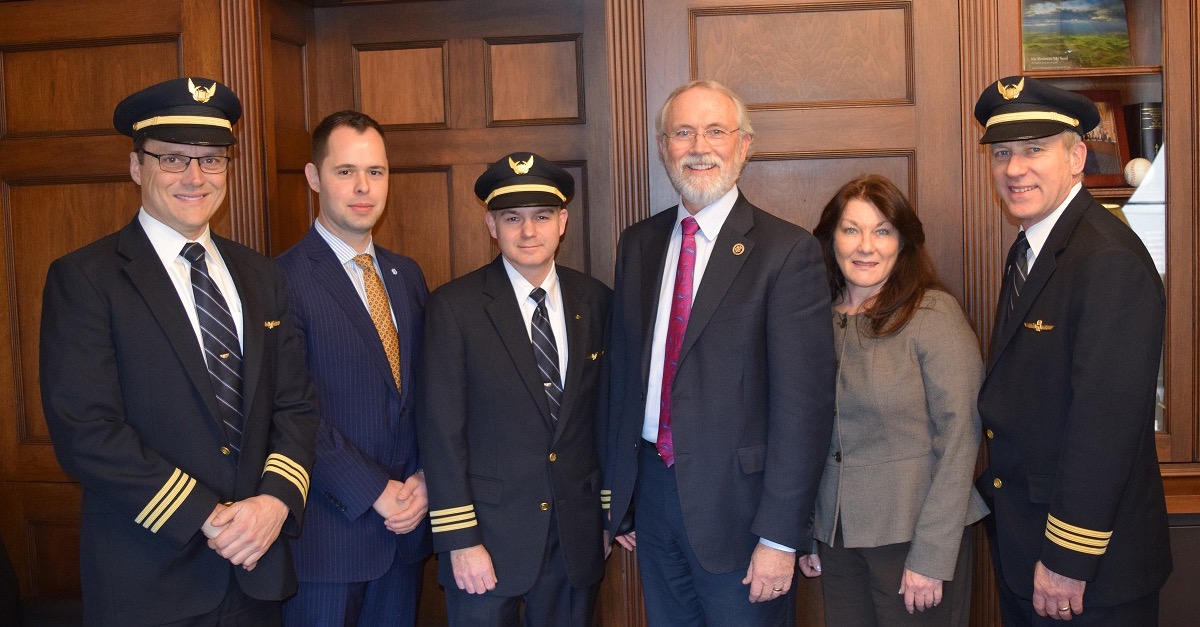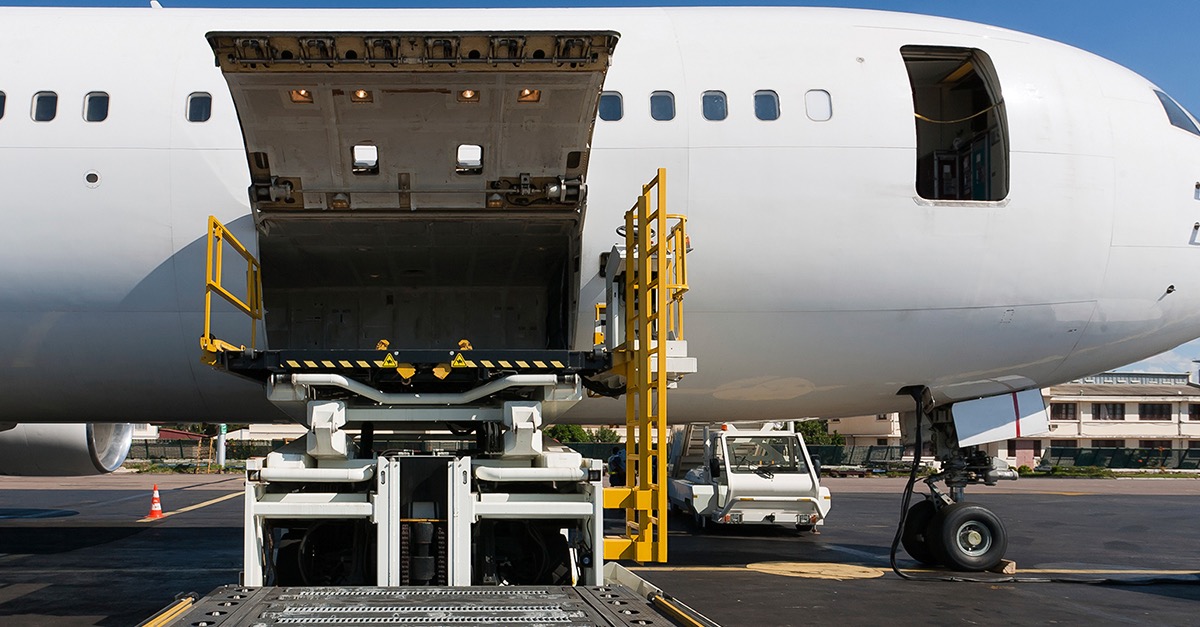Published on
January 21, 2016
By Captain Chuck Dyer, FedEx MEC Chairman
My fellow pilots at FedEx are engaged in a struggle that I believe poses one of the greatest threats to our pilots’ health and professional welfare imaginable. As you may recall, a few years back, UPS Flight 6 caught fire in the skies of Arabia a few minutes after takeoff, and before the crew could safely land the aircraft, both pilots perished and the aircraft was lost. It was discovered that this fire was caused by lithium batteries—to be clear, more than 80,000 lithium batteries. That’s right, more than 80,000 of them.
Published on
January 15, 2016
This week, United Airlines pilots took to Capitol Hill as part of ALPA’s efforts to mandate secondary barriers on passenger aircraft. Secondary barriers are lightweight devices that are easy to deploy and stow, installed between the passenger cabin and the cockpit door, that block access to the flight deck whenever the reinforced door is opened in flight.
After the attacks of 9/11, the U.S. Congress and the Canadian Parliament mandated that airlines replace standard cockpit doors with hardened doors on certain types of airliners. However, practical experience using these doors soon revealed a critical vulnerability—the reinforced door must be periodically opened during flight for pilots’ operational and physiological needs, which means they may be compromised by one or more terrorists who could rush the flight deck. To address this unintended security lapse, a secondary barrier was developed by airlines for use whenever the cockpit door is open during flight.
Government and industry studies have shown that secondary cockpit barriers are an effective, inexpensive way to protect our aircraft during flight when the cockpit door must be opened. The current alternative—a flight attendant acting as a human shield with or without a serving cart—is not an acceptable layer of security.
Published on
December 30, 2015
Read Capt. Canoll’s opinion piece published today in The Hill where he calls on Congress, as it considers reauthorizing the Federal Aviation Administration, to regulate shipments of lithium batteries because lives depend on it.
Published on
December 15, 2015
Over the past two weeks, airlines throughout the world have announced voluntary bans on the passenger carriage of hoverboards on aircraft. These boards pose a serious threat to the safety of aircraft because of their power source: lithium batteries. Each board has a single battery that is capable of self-igniting and burning hotter than standard fire suppression systems are capable of putting out. That’s bad news mid-flight.
Passenger airlines have recognized the grave dangers posed by just one lithium battery; imagine the incredible threat a pallet-full or an entire cargo compartment of these batteries can pose. While some passenger airlines have also voluntarily banned bulk shipments of lithium ion batteries, other airlines have not and unfortunately, for cargo pilots, they live with this threat every day from the carriage of both lithium ion, and worse, lithium metal battery shipments.
Published on
November 18, 2015
By Philip Prada, First Officer, Spirit Airlines
Over the last decade, three state-owned carriers in the Middle East (Emirates, Qatar, and Etihad = ME3) have received more than $42 billion in subsidies and other unfair benefits. On the surface, it’s easy to see why my fellow pilots who fly for low cost carriers don’t believe this issue impacts them. The initial thought is that this only impact international flying at American, Delta, and United. But, the tie is much more closely linked to low cost carriers and regionals. Let me tell you why as a Spirit pilot, I am highly concerned about the impact on the low cost carrier market.
While U.S. airlines compete fairly in our free market, the ME3 carriers are cheating the system and playing by their own rules. They want to dominate the American market – the largest, most lucrative air service market in the world – and are cheating to win. The schemes that the governments of Emirates, Qatar and Etihad use to infuse money into their airlines so they never have to show a profit come in the form of direct capital injections and interest free loans that have no repayment schedule. Of the $42billion, $3.3 billion was spent for the construction of terminal 3 in DXB, Emirates new, exclusive use A380 hub.






